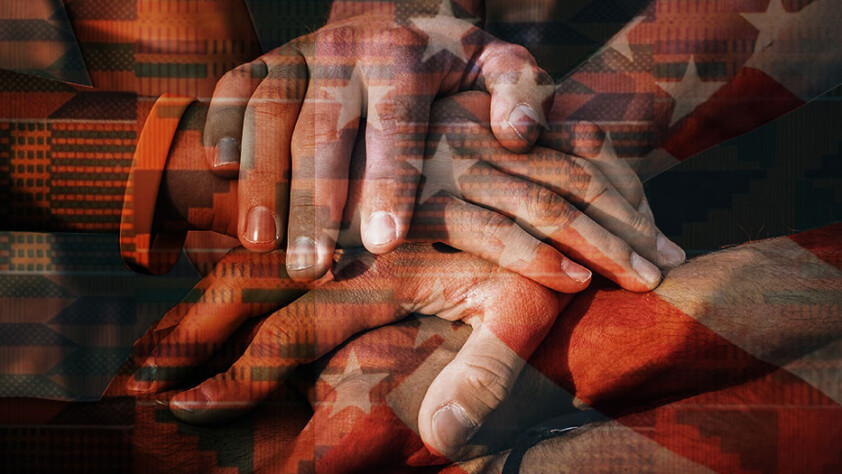DAY-11: EDUCATION PT1 – THE CONTRAST OF W.E.B. DUBOIS VS BOOKER T. WASHINGTON AND IT”S SUBSEQUENT IMPACT
One of the most remarkable aspects of Black people’s transformation comes to life within the institution of education. When Africans were captured and illegally loaded onto ships bound for What we now call America, there was a concerted effort to separate them to prevent mutiny during the journey. The most significant deterrent to these uprisings was the shackles and inhumane conditions they had to endure along the way. However, some Africans were still able to find ways to rebel and overthrow the ship’s crew. Eventually, the ship captains and plantation owners quickly realized that separation was an even more surefire way of maintaining control.
As a result, enslaved Africans were taken from their families and tribes and mixed with other groups from different regions–causing an immediate communication problem–impacting their ability to plan and carry out rebellions and escapes.
Over time they learned a new language and a new way of living. Those that were already here taught those who just arrived. The phrase, necessity is the mother of invention” was an understatement when describing their circumstance. Either assimilate, or be beaten, or even worse, killed. Yet, this paradigm shift gave birth to what I describe as necessity-based learning. It’s one thing to desire to learn something for a passive application. It’s another thing altogether when learning is attached to your survival.
Blacks enslaved on plantations all across the south not only learned to overcome the language barrier; they learned to do any task placed in front of them and do it well. They didn’t just pick cotton; they created innovative processes and enhanced machinery to be more productive. They didn’t just learn to cook and clean; they invented ironing boards and developed recipes that still cause people’s mouths to water 400 years later. Their innate ability to learn, improve, and innovate amidst the most tragic circumstances should cause all who reflect to marvel at their creative genius and perseverance.
Many Blacks found opportunities to learn more than what the plantation fields had to offer. Despite the barriers, some found their way into schools and institutions of higher learning. It is truly remarkable what progress African Americans were able to achieve educationally amidst all of the effort to prohibit reading and high-level project solving.
As slavery in America came to an end, most Blacks migrated away from plantations with a new desire. Now, they needed to refine or enhance what they knew or learn an entirely new set of skills to receive earnings to care for themselves. At the time, there were two contrasting schools of thought. Booker T. Washington, the son of an unknown white man and an enslaved black woman named Jane, believed that there was divinity in work. He asserted that freed Black people should prepare themselves in various trades to be competitive as they entered the new workforce. He earnestly believed all work was good. On the other hand, Scholar and activist W.E.B. Dubois fostered an approach that Black people should focus on academic education to acquire positions of affluence that could change the landscape–creating a better existence for the Black people. #LetTheTruthBeTold. Alas, this powerful dichotomy changed the landscape forever by presenting Black people with the blueprint that used education, either vocational or academic, to integrate themselves into mainstream society successfully. They got in where they fit in.
We have chosen to celebrate a select few education pioneers for their determination to change Black perception and thus change the landscape and future of our country. Today we honor their genius. We must not let their contributions be forgotten or let others bask in the credit of their achievements. Today let’s change the narrative. #LET THE TRUTH BE TOLD.
“W.E.B Dubois Challenges the System”
W.E.B. Dubois, Scholar, Activist, And Founder of the NAACP. was unwilling to compromise his desire to see Black people treated as equal citizens.
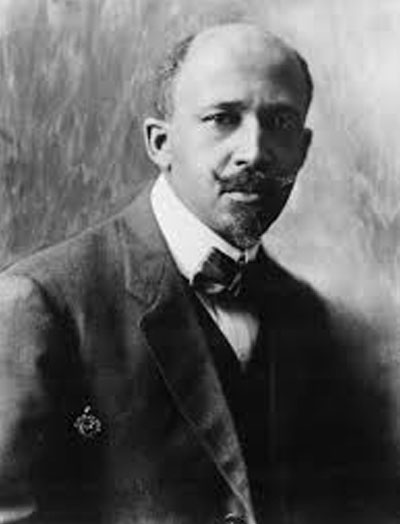
W.E.B. Dubois 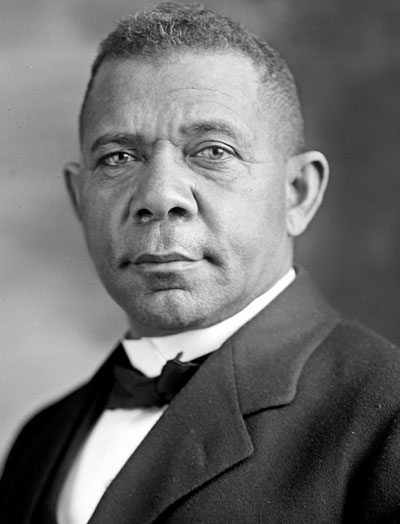
Booker T. Washington
W.E.B. Du Bois was an influential African American rights activist during the early 20th century. He co-founded the NAACP and wrote ‘The Souls of Black Folk.’
Scholar and activist W.E.B. Du Bois became the first African American to earn a Ph.D. from Harvard University in 1895. He wrote extensively and was the best-known spokesperson for African American rights during the first half of the 20th century. Du Bois, co-founded the National Association for the Advancement of Colored People (NAACP) in 1909.
“Early Life and Education”
William Edward Burghardt Du Bois, better known as W.E.B. Du Bois, was born on February 23, 1868, in Great Barrington, Massachusetts.
While growing up in a mostly white American town, Du Bois identified himself as mulatto, but freely attended school with white people and was enthusiastically supported in his academic studies by his white teachers. In 1885, he moved to Nashville, Tennessee, to attend Fisk University. It was there that he first encountered Jim Crow laws. For the first time, he began analyzing the deep troubles of American racism.
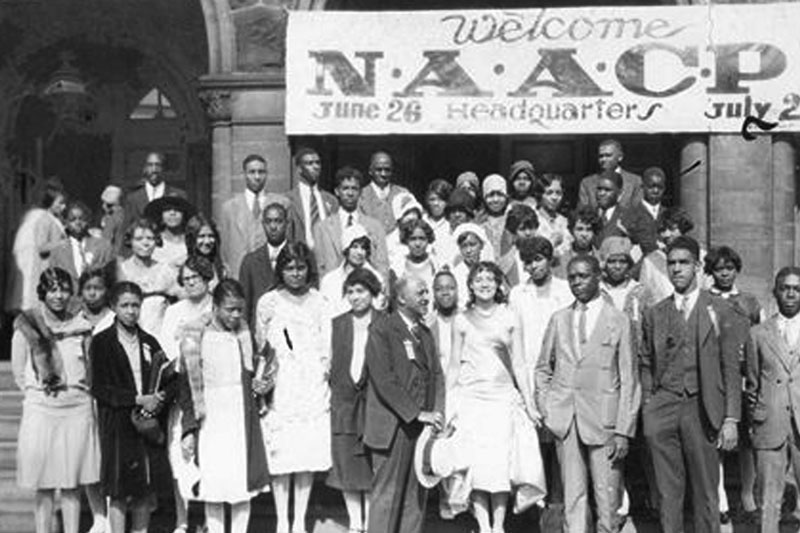
Advancement of Colored People) in 1909.
Du Bois published his landmark study — the first case study of an African American community — The Philadelphia Negro: A Social Study (1899), marking the beginning of his expansive writing career. In the study, he coined the phrase “the talented tenth,” a term that described the likelihood of one in 10 Black men becoming leaders of their race.
While working as a professor at Atlanta University, Du Bois rose to national prominence when he very publicly opposed Booker T. Washington‘s “Atlanta Compromise,” an agreement that asserted that vocational education for Black people was more valuable to them than social advantages like higher education or political office.
Du Bois criticized Washington for not demanding full equality for African Americans, as granted by the 14th Amendment. Du Bois fought what he believed was an inferior strategy, subsequently becoming a spokesperson for full and equal rights in every realm of a person’s life.
W.E.B. Du Bois became the first African American to earn a Ph.D. from Harvard University. in 1895.
BIOGRAPHY.COM
“Booker t. Washington the pragmatist”
Booker T. Washington considered to be a forefather of Vocational Education did not believe the White establishment were going to concede the right to vote in the near future.
Booker T. Washington was one of the foremost African American leaders of the late 19th and early 20th centuries, founding the Tuskegee Normal and Industrial Institute.
Booker T. Washington is one of the most controversial and dominant figures in African American history. According to his autobiography Up From Slavery (1901), he did not know the exact year, date, and place of his birth or his father’s name. Yet, it is widely understood that he was born enslaved on April 5, 1856 in Hale’s Ford, Virginia. His mother’s name was Jane and his father was a white man from a nearby plantation. At the age of nine, Washington was freed from slavery and moved to West Virginia. He had always been known as simply “Booker” until he decided to add the name “Washington” after feeling the pressure to have two names when he started grammar school.
“The Atlanta Compromise”
At the age of 16, Washington began college at the Hampton Normal and Agriculture Institute in Hampton, Virginia. He also attended Wayland Seminary from 1878 to 1879 before returning to teach at Hampton. As a result of a recommendation from Hampton officials, he became the first principal of Tuskegee Normal and Industrial Institute (now Tuskegee University), which opened on July 4, 1881; he remained in this capacity for 34 years until his death in 1915.
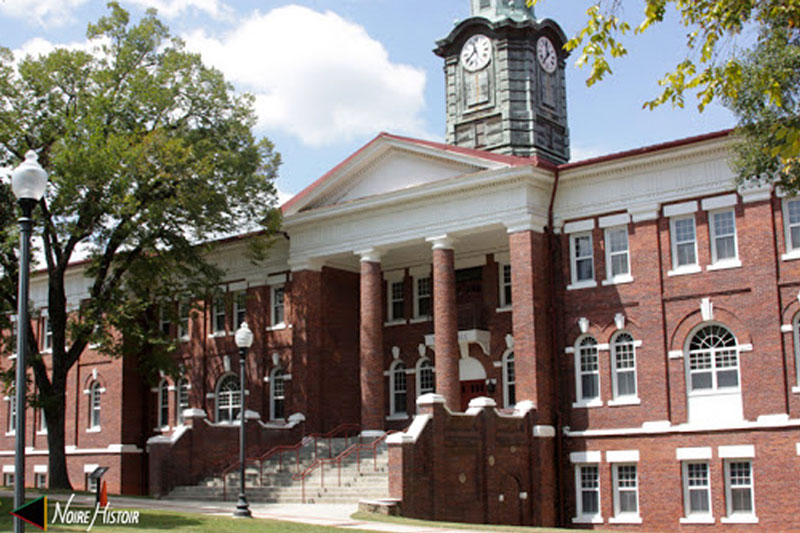
Tuskegee Normal and Industrial Institute (now Tuskegee University)
As the principal of Tuskegee Institute, Washington had the vehicle and platform to practice and espouse his educational philosophy and theory concerning the advancement of African Americans. In 1895 he was invited to speak at the opening of the Cotton States Exposition in Atlanta, Georgia where he advocated that African Americans could attain their constitutional rights through their
own economic and moral progression by becoming efficient at practical skills such as farming, carpentry, and masonry rather than pursuing legal and political means for collective advancement. Moreover, he advanced the idea that African Americans should “compromise” and acquiesce to segregation, a position which garnered him the title of “The Great Accommodator.” Although Washington never publicly condemned forced segregation, Jim Crow laws, or lynching, he secretly contributed funds to the legal fight against them. This apparent paradox, among other actions, prompts the ongoing dialogue concerning the use and complexity of his tactics as scholars and other observers continue to wonder: who is the real Booker T. Washington?
At the bottom of education, at the bottom of politics, at the bottom of religion, there must be for our race, economic independence.
BOOKER T. WASHINGTON
“A Word from the author”
I often wonder how we as people sometimes find it hard to see the benefit of both assertions. As we celebrate these two brilliant and inspiring Black men, let us view, in hindsight, the advantage of both viewpoints. I believe Booker T. Washington is considered to be one of the founding fathers of what we know today as vocational education. Many people view vocational education and academic education as different. Washington’s premise was able to make it very clear, at least for me, that all education is vocational. Somehow, we have placed some professions on pedestals over others. But #LetTheTruthBeTold, dignity can be found in all work, whether a carpenter, a farmer or a doctor. It’s all needed.
“Education is meant to make us give satisfaction and to get satisfaction out of giving it. It is meant to make us get happiness out of service to our fellows. And until we get to the point where we can get happiness and supreme satisfaction out of helping our fellows, we are not truly educated.”
–Booker T. Washington
People should not feel slighted to work with their hands as craftsmen, versus their brain as a thought provoker or teacher. #LetTheTruthBeTold, the English major, becomes a journalist or teacher, math major, an accountant, and science major a doctor.
On the other hand, Sir W.E.B. Dubois was absolutely correct to move the fight for equal treatment forward. Black people are entitled to every fundamental right asserted in the Constitution of the United States of America. Indeed, they had a right to the best schools, the jobs, the best places to live, and a better quality of life. I am glad that each of them, the educator and the activist, did all they could to move their efforts forward, as today we are so much richer as a people and a nation. #LetTheTruthBeTold.
Content provided courtesy of History.com, Britannica.com and Wikipedia.com, Biographies.com, Blackpast.com, notablebiographies.com, Youtube.com. All Rights Reserved.


